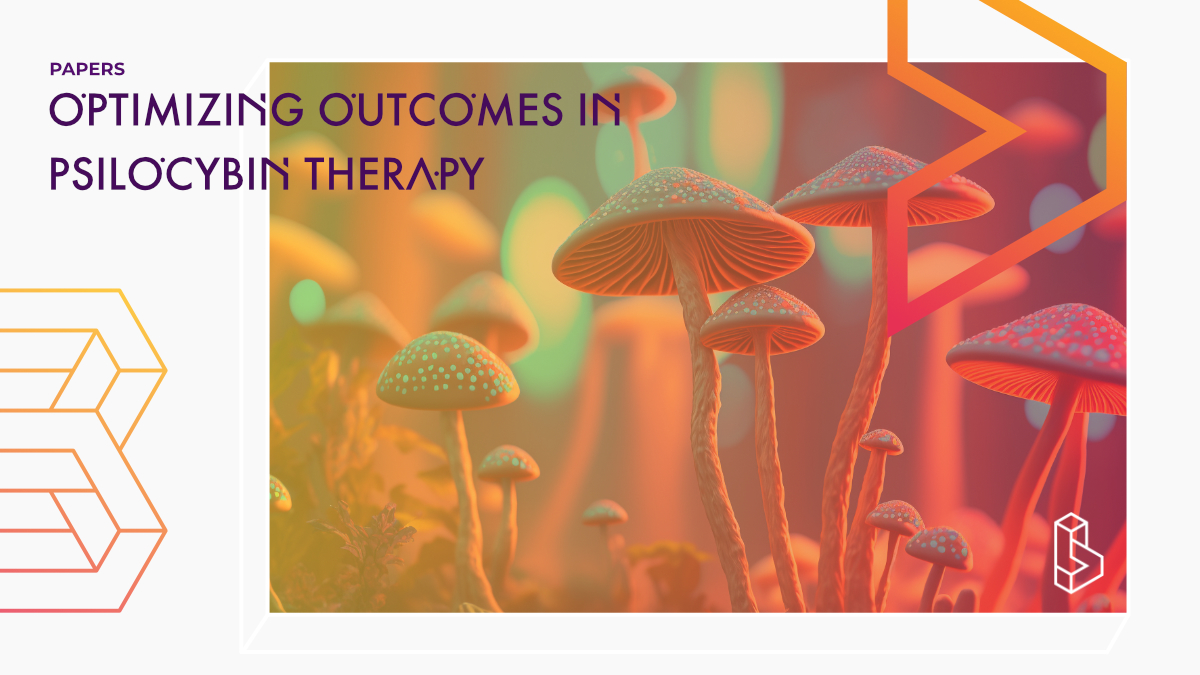This theory-building article (2023) proposes that a patient’s ‘readiness’ (eligibility & capacity) is taken into account to optimise the outcomes of psilocybin/psychedelic-assisted therapies (PAT). Factors discussed include intrapersonal (e.g. openness & motivation) and interpersonal (e.g. therapeutic alliance) factors.
Abstract
“Recent studies have demonstrated the promise of psilocybin therapies in creating positive changes for those with poor mental health across multiple diagnostic categories, including major depressive disorder (MDD), end-of-life anxiety, and obsessive-compulsive disorder (OCD). While there may be a large population that is eligible to participate in psilocybin therapy based on psychiatric diagnosis and medical clearance, little attention has been given to intrapersonal and interpersonal factors that might influence patient’s readiness (i.e., eligibility and capacity) for psychedelic interventions. This paper proposes that readiness assessment includes both intrapersonal and interpersonal factors in order to improve safety, patient care, and treatment outcomes. While at the present time a reliable and valid instrument has not been developed, we propose that three specific areas of focus – patient presentation, therapeutic alliance, and patient safety – may be used to establish a patient’s readiness for psilocybin therapy, thus increasing therapy optimization and personalization.”
Authors: Nadav L. Modlina, Tammy M. Miller, James J. Rucker, Namik Kirlic, Molly Lennard-Jonese, Danielle Schlosser & Scott T. Aaronson
Summary of Optimizing outcomes in psilocybin therapy
Psychedelic therapies are psychological interventions delivered with intermittent, supported dosing sessions with psychedelic drugs, including lysergic acid diethylamide (LSD) and psilocybin. Current randomized control trials investigating psilocybin therapy provide preliminary evidence for the safety, tolerability, and efficacy of psilocybin for patients with treatment-resistant major depressive disorder.
Psilocybin is a selective partial agonist of the 5-HT2A receptors in the cortex of the human brain, which leads to an altered state of consciousness, alterations in auditory and visual perceptions, and positive experiences of a sense of non-dualism, oneness, or unity.
Find this paper
Optimizing outcomes in psilocybin therapy: Considerations in participant evaluation and preparation
https://doi.org/10.1016/j.jad.2023.01.077
Paywall | Google Scholar | Backup | 🕊
Study details
Compounds studied
Psilocybin
Topics studied
Safety
Study characteristics
Literature Review
Theory Building
Institutes
Institutes associated with this publication
King's College LondonThe Institute of Psychiatry, Psychology & Neuroscience (IoPPN) at King's College London is one of Europe's top centres for mental health and related neurosciences research.

